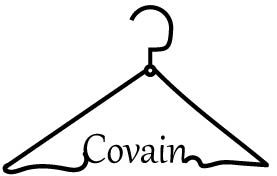
Introduction:
The food we eat has a direct impact on the health and appearance of our skin. Certain foods can promote clear, glowing skin, while others can contribute to acne, inflammation, and other skin issues. Models’ skin takes a beating from all the travel they do and all the different products a makeup artist puts on their face. Follow the tips below to see an improvement in your skin.
Keep a Balanced Diet:
One important factor to consider is the impact of a balanced diet on skin health. Eating a variety of fruits, vegetables, whole grains, and lean proteins provides the essential nutrients that support healthy skin, such as vitamins A, C, and E, zinc, and omega-3 fatty acids. These nutrients help to nourish the skin from within, promoting collagen production, protecting against oxidative stress, and reducing inflammation.
For example, antioxidants like vitamins A, C, and E help protect the skin from damage caused by free radicals, which can lead to premature aging. Foods rich in these antioxidants include berries, citrus fruits, leafy greens, and nuts.
Omega-3 fatty acids, found in fatty fish like salmon and sardines, as well as walnuts and flaxseeds, can help maintain the integrity of the skin cell membrane and reduce inflammation. This can result in smoother, more supple skin.
Cut Out Low-glycemic Index Foods:
Additionally, foods with a low glycemic index, such as whole grains, legumes, and non-starchy vegetables, can help regulate blood sugar levels and reduce the risk of acne breakouts.
On the other hand, a diet high in High-glycemic foods or processed foods, sugar, unhealthy fats, and refined carbohydrates can lead to a spike in blood sugar levels and hormonal fluctuations, which can contribute to increased oil production and acne breakouts.
Examples of Low Glycemic Foods:
Some specific items include white bread, sugary snacks, and sweetened beverages. Additionally, certain individuals may be sensitive or allergic to specific foods, such as dairy or gluten, which can trigger skin reactions. Identifying and avoiding these trigger foods can help improve skin conditions like eczema or rosacea.
Experiment with Foods:
It’s important to pay attention to how different foods affect your skin and make adjustments to your diet accordingly. Maintaining a healthy and balanced diet, along with proper skincare habits, can help to improve the overall appearance and health of your skin.
Stay Hydrated:
Overall, maintaining a balanced diet that includes a variety of nutrient-rich foods is essential for healthy skin. Drinking plenty of water to stay hydrated and limiting alcohol and caffeine intake can also help keep the skin looking its best.
Consult a Professional:
Additionally, consulting with a dermatologist or registered dietitian can provide personalized guidance and recommendations for achieving optimal skin health through diet. Remember models that great skin is a journey not a sprint. Sometimes you will have to test out many ingredients individually before you know which ones your body reacts well to or badly.
Stay Natural:
I don’t recommend taking steroids for acne because steroids will negatively affect your body which isn’t good for you to be the healthiest version of yourself. Do a little for yourself each day and you will see how in a few months your hard work pays off.
Conclusion:
Follow these tips consistently and watch how your skin transforms. Models need to take extra care of their skin to book more gigs and higher paid gigs. It’s less work for the editor when the model has healthy beautiful skin. Being camera ready is the motto models need to live by.
Author: Danielle N. Mott
